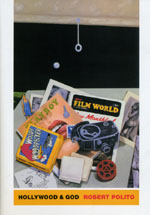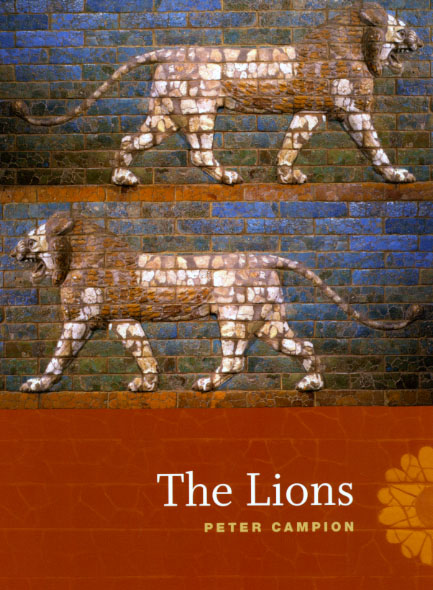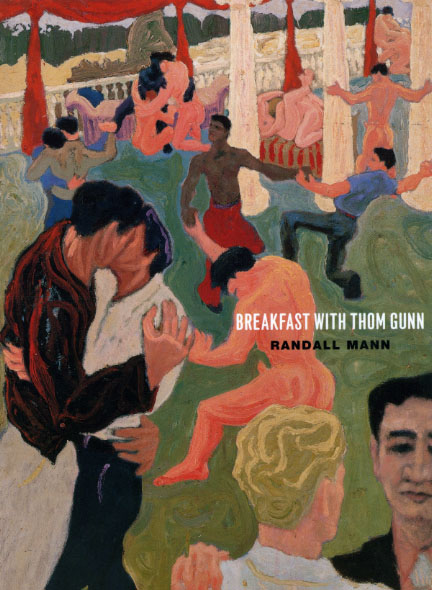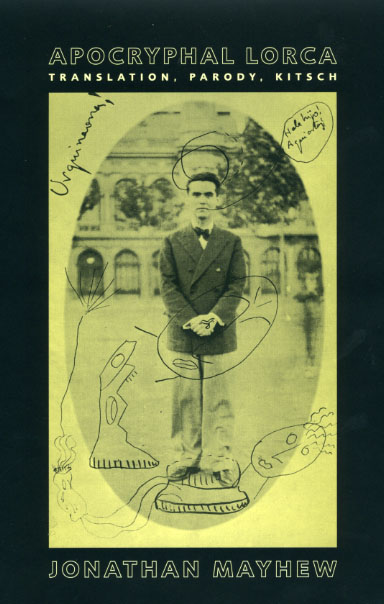Celebrating National Poetry Month
April is National Poetry Month and on the first day of celebration, we wanted to highlight some of the fine poetic offerings Chicago is publishing this month. With three new volumes in our esteemed Phoenix Poets series, a new edition of a classic collection, and new titles in criticism, UCP has everything you need for a successful, and stimulating, poetry month!
 With Hollywood & God, Robert Polito delivers a virtuosic performance, filled with crossings back and forth from cinematic chiaroscuro to a kind of unsettling desperation and disturbing—even lurid—hallucination. From the Baltimore Catechism to the great noir films of the last century to today’s Elvis impersonators and Paris Hilton (an impersonator of a different sort), Polito tracks the snares, abrasions, and hijinks of personal identities in our society of the spectacle, a place where who we say we are, and who (we think) we think we are fade in and out of consciousness, like flickers of light dancing tantalizingly on the silver screen. Mixing lyric and essay, collage and narrative, memoir and invention, Hollywood & God is an audacious book, as contemporary as it is historical, as sly and witty as it is devastatingly serious.
With Hollywood & God, Robert Polito delivers a virtuosic performance, filled with crossings back and forth from cinematic chiaroscuro to a kind of unsettling desperation and disturbing—even lurid—hallucination. From the Baltimore Catechism to the great noir films of the last century to today’s Elvis impersonators and Paris Hilton (an impersonator of a different sort), Polito tracks the snares, abrasions, and hijinks of personal identities in our society of the spectacle, a place where who we say we are, and who (we think) we think we are fade in and out of consciousness, like flickers of light dancing tantalizingly on the silver screen. Mixing lyric and essay, collage and narrative, memoir and invention, Hollywood & God is an audacious book, as contemporary as it is historical, as sly and witty as it is devastatingly serious.
Read a poem from the book or check out an excerpt from Polito’s earlier book, Doubles.
 In The Lions, Peter Campion writes about the struggle of making a life in America, about the urge “to carve a space” for love and family from out of the vast sweep of modern life. Coursing between the political and personal with astonishing ease, Campion writes at one moment of his disturbing connection to the public political structure, symbolized by Robert McNamara (who makes a startling appearance in the title poem), then in the next, of a haunting reverie beneath a magnolia tree, representing his impulse to escape the culture altogether. He moves through various forms just as effortlessly, as confident in rhymed quatrains as in slender, tensed free verse. In The Lions, Campion achieves a fusion of narrative structure and lyric intensity that proves him to be one of the very best poets of his generation.
In The Lions, Peter Campion writes about the struggle of making a life in America, about the urge “to carve a space” for love and family from out of the vast sweep of modern life. Coursing between the political and personal with astonishing ease, Campion writes at one moment of his disturbing connection to the public political structure, symbolized by Robert McNamara (who makes a startling appearance in the title poem), then in the next, of a haunting reverie beneath a magnolia tree, representing his impulse to escape the culture altogether. He moves through various forms just as effortlessly, as confident in rhymed quatrains as in slender, tensed free verse. In The Lions, Campion achieves a fusion of narrative structure and lyric intensity that proves him to be one of the very best poets of his generation.
Read a poem from the book or check out Campion’s earlier collection, Other People.
 Randall Mann’s Breakfast with Thom Gunn is a work both direct and unsettling. Haunted by the afterlife of Thom Gunn (1929-2004), one of the most beloved gay literary icons of the twentieth century, the poems are moored in Florida and California, but the backdrop is “pitiless,” the trees “thin and bloodless,” the words “like the icy water” of the San Francisco Bay. Mann, fiercely intelligent, open yet elusive, draws on the “graceful erosion” of both landscape and the body, on the beauty that lies in unbeauty. With audacity, anxiety, and unbridled desire, this gifted lyric poet grapples with dilemmas of the gay self embroiled in—and aroused by—a glittering, unforgiving subculture. Breakfast with Thom Gunn is at once formal and free, forging a sublime integrity in the fire of wit, intensity, and betrayal.
Randall Mann’s Breakfast with Thom Gunn is a work both direct and unsettling. Haunted by the afterlife of Thom Gunn (1929-2004), one of the most beloved gay literary icons of the twentieth century, the poems are moored in Florida and California, but the backdrop is “pitiless,” the trees “thin and bloodless,” the words “like the icy water” of the San Francisco Bay. Mann, fiercely intelligent, open yet elusive, draws on the “graceful erosion” of both landscape and the body, on the beauty that lies in unbeauty. With audacity, anxiety, and unbridled desire, this gifted lyric poet grapples with dilemmas of the gay self embroiled in—and aroused by—a glittering, unforgiving subculture. Breakfast with Thom Gunn is at once formal and free, forging a sublime integrity in the fire of wit, intensity, and betrayal.
Read a poem from the book or check out our blog post on what Mann was up to before he sat down for breakfast with Gunn.
Speaking of Thom Gunn, in 1968, the Press published the Selected Poems of Fulke Greville, which Gunn edited. This month, we are reissuing the book in paperback with a new foreword by Bradin Cormack. Although Greville’s poems, long out of print, are today less well known than those of Sidney, Spenser, or Shakespeare, Greville nevertheless left an indelible mark on the world of Renaissance poetry, both in his love poems, which ably work within the English Petrarchan tradition, and in his religious meditations, which, along with the work of Donne and Herbert, stand as a highpoint of early Protestant poetics. Back in print for a new generation of scholars and readers, Gunn’s selection of Greville’s short poems includes the whole of Greville’s lyric sequence, Caelica, along with choruses from some of Greville’s verse dramas. Gunn’s introduction places Greville’s thought in historical context and in relation to the existential anxieties that came to preoccupy writers in the twentieth century. It is as revealing about Gunn himself, and the reading of earlier English verse in the 1960s, as it is about Greville’s own poetic achievement. This reissue of Selected Poems of Fulke Greville is an event of the first order both for students of early British literature and for readers of Thom Gunn and English poetry generally.
Check out our blog post on Greville. Robert Pinsky, whose Thousands of Broadways: Dreams and Nightmares of the American Small Town will be out later this month, loves to get down to the Fulke Greville (doesn’t it sound like a jaunty jig?).
 Recent Bollingen Prize winner Allen Grossman explores in True-Love poetry’s singular mission is to bind love and truth together—love that desires the beloved’s continued life, knotted with the truth of life’s contingency—to help make us more present to each other. In the spirit of Blake’s vow of “mental fight,” Grossman contends with challenges to the validity of the poetic imagination, from Adorno’s maxim “No poetry after Auschwitz,” to the claims of religious authority upon truth, and the ultimate challenge posed by the fact of death itself. To these challenges he responds with eloquent and rigorous arguments, drawing on wide resources of learning and his experience as master-poet and teacher. Grossman’s readings of Wordsworth, Hart Crane, Paul Celan, and others focus on poems that interrogate the real or enact the hard bargains that literary representation demands. True-Love is destined to become an essential book wherever poetry and criticism sustain one another.
Recent Bollingen Prize winner Allen Grossman explores in True-Love poetry’s singular mission is to bind love and truth together—love that desires the beloved’s continued life, knotted with the truth of life’s contingency—to help make us more present to each other. In the spirit of Blake’s vow of “mental fight,” Grossman contends with challenges to the validity of the poetic imagination, from Adorno’s maxim “No poetry after Auschwitz,” to the claims of religious authority upon truth, and the ultimate challenge posed by the fact of death itself. To these challenges he responds with eloquent and rigorous arguments, drawing on wide resources of learning and his experience as master-poet and teacher. Grossman’s readings of Wordsworth, Hart Crane, Paul Celan, and others focus on poems that interrogate the real or enact the hard bargains that literary representation demands. True-Love is destined to become an essential book wherever poetry and criticism sustain one another.
 And finally, Jonathan Mayhew examines how Federico García Lorca (1898-1936) in English translation has become a specifically American poet, adapted to American cultural and ideological desiderata—one that bears little resemblance to the original corpus, or even to Lorca’s Spanish legacy. Lorca had enormous impact on the generation of American poets who came of age during the cold war, from Robert Duncan and Allen Ginsberg to Robert Creeley and Jerome Rothenberg. In large numbers, these poets have not only translated his works, but written imitations, parodies, and pastiches—along with essays and critical reviews. Mayhew’s Apocryphal Lorca is an exploration of the afterlife of this legendary Spanish writer in the poetic culture of the United States. As Mayhew assesses Lorca’s considerable influence on the American literary scene of the latter half of the twentieth century, he uncovers fundamental truths about contemporary poetry, the uses and abuses of translation, and Lorca himself.
And finally, Jonathan Mayhew examines how Federico García Lorca (1898-1936) in English translation has become a specifically American poet, adapted to American cultural and ideological desiderata—one that bears little resemblance to the original corpus, or even to Lorca’s Spanish legacy. Lorca had enormous impact on the generation of American poets who came of age during the cold war, from Robert Duncan and Allen Ginsberg to Robert Creeley and Jerome Rothenberg. In large numbers, these poets have not only translated his works, but written imitations, parodies, and pastiches—along with essays and critical reviews. Mayhew’s Apocryphal Lorca is an exploration of the afterlife of this legendary Spanish writer in the poetic culture of the United States. As Mayhew assesses Lorca’s considerable influence on the American literary scene of the latter half of the twentieth century, he uncovers fundamental truths about contemporary poetry, the uses and abuses of translation, and Lorca himself.
Read our recent post that contains Mayhew’s essay on the genesis of his book.
And, of course, if all of this National Poetry Month hullabaloo has you saying bah humbug, you can always find solace in Charles Bernstein‘s classic “Against National Poetry Month As Such”.